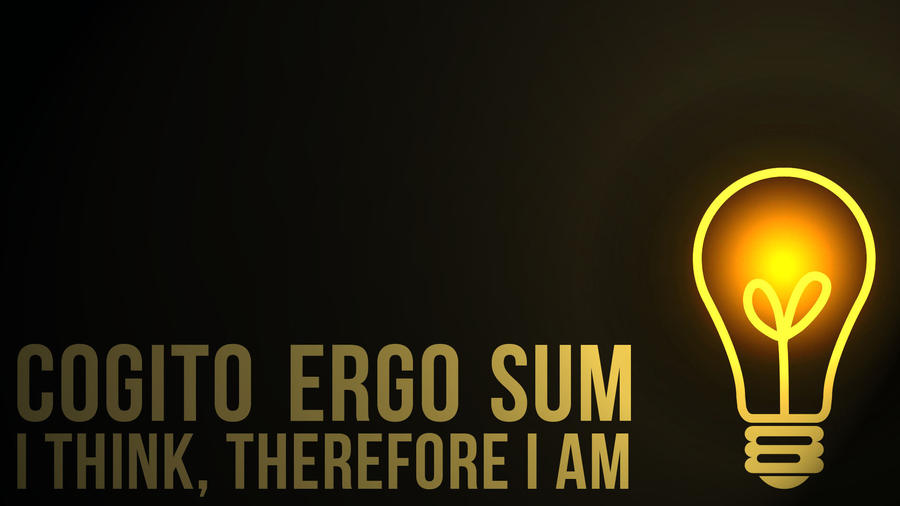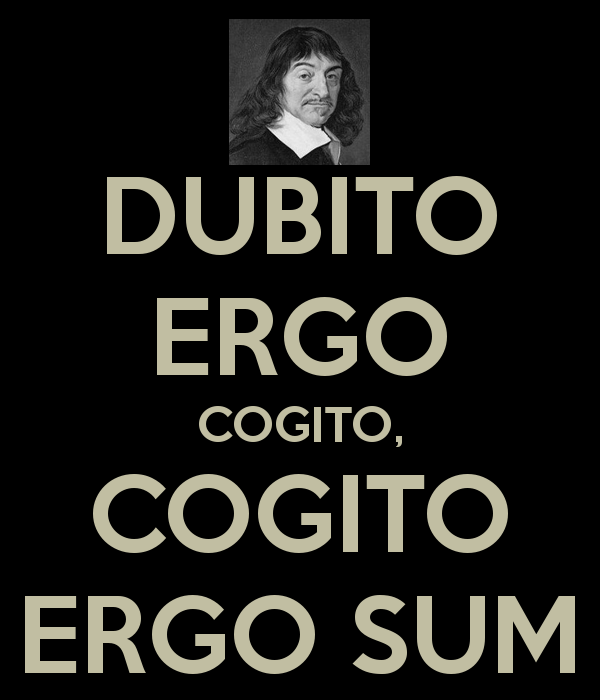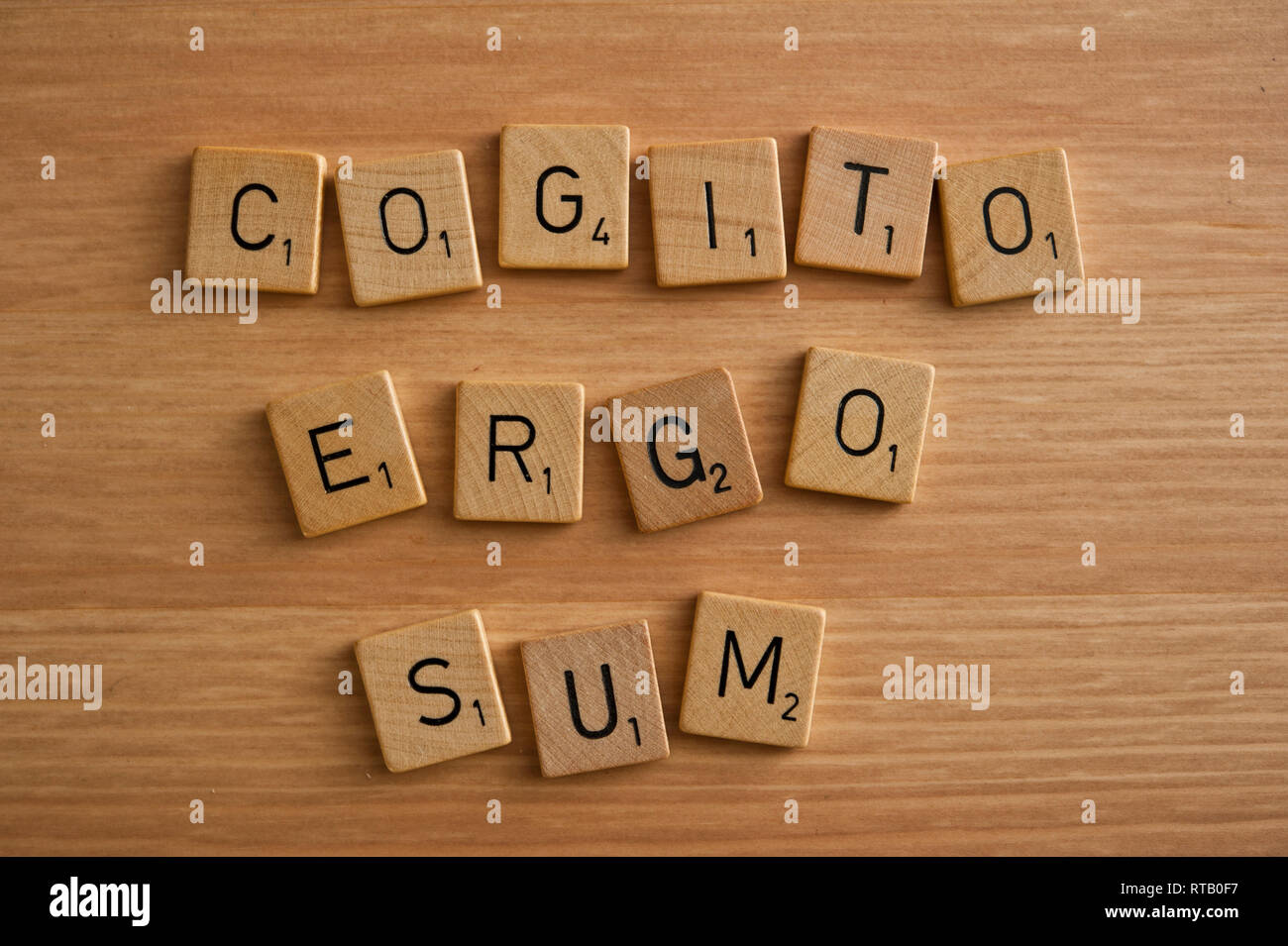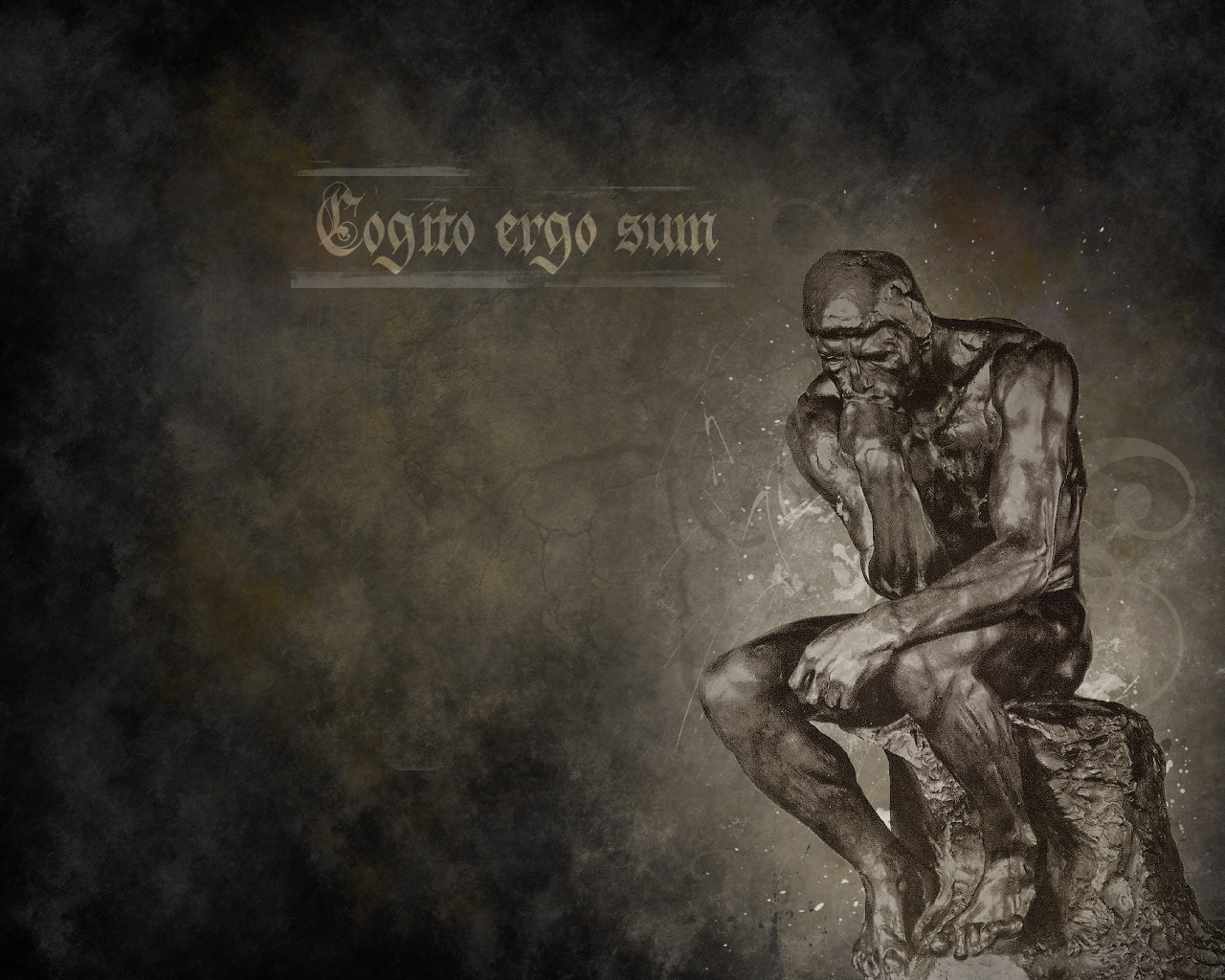
Pin by Stephen Witherington on Cognacity versus Iconicity in 2020
Summary. "I think, therefore I am" is the popularized formulation of Descartes' famous cogito ergo sum (hereafter, " cogito "). The cogito 's epistemological significance is supposed to derive from its status as an utterly self-evident truth - "the first and most certain of all to occur to anyone who philosophizes in an orderly.

Dubito ergo cogito, cogito ergo sum.
So, the Cogito: "Je pense, donc je sui." (Cogito, ergo sum), which asserts that the real existence of "I" is implied by the truth of the proposition "I think" or "I am thinking," cannot be known to be true a priori. It cannot, therefore be the basic proposition of a series of deductions reaching to every corner of human knowledge, as Descartes.

Cogito Ergo Sum by kurozael on DeviantArt
The meaning of COGITO, ERGO SUM is I think, therefore I am.

Cogito ergo sum Highbrow
What's the origin of the phrase 'Cogito ergo sum'? Possibly the best known of all philosophical quotations; this is from the French philosopher René Descartes in Discourse on Method, 1637, where he attempted to prove his existence as a thinking being, by thinking.'I think, therefore I am' comes to us in English via two translations.

COGITO ERGO SUM Separation And Divorce, Cogito Ergo Sum, Motivational
Or in his own words " I doubt, therefore I am — or what is the same — I think, therefore I am. " A more complete form of the dictum was created by the French poet Antoine Léonard Thomas in an essay praising Descartes, where he wrote dubito, ergo cogito, ergo sum, meaning I doubt, therefore I think, therefore I am.

COGITO ERGO SUM MAGISTER DIXIT
Literally Literary · 2 min read · Sep 30, 2019 3 Pinterest Inspired by the famous Latin saying by René Descartes — 'Cogito, ergo sum'. This poem is titled based on the fuller version of the.

Cogito ergo sum... Cogito ergo sum, Gorilla, Magnificent beasts
The Cogito and Doubt 4.1 Cogito Ergo Sum. Famously, Descartes puts forward a very simple candidate as (what CSM translate as being) the "first item of knowledge [cognition]" (Med. 3, AT 7:35, CSM 2:24). The candidate is suggested by methodical doubt - by the very effort at thinking all my thoughts might be mistaken. Early in the Second.

“Dubito, ergo cogito, ergo sum”, said AI Max Versace
This is where "cogito ergo sum" starts to come in - we can doubt many things, but we cannot doubt that we think. After all, even doubting is a kind of thinking. "Cogito ergo sum" is, for this reason, a fundamental element of Descartes' philosophical method. This method aimed to establish a firm and indubitable foundation for knowledge.

Wading Through Treacle Dubito ergo sum
"Dubito, ergo cogito, ergo sum. (English: "I doubt, therefore I think, therefore I am")" ― Rene Descartes (Principles of Philosophy) Read more quotes from René Descartes Share this quote: Like Quote Recommend to friends Friends Who Liked This Quote To see what your friends thought of this quote, please sign up! 127 likes

Cogito Ergo Sum Photo Stock Alamy
Doesn't it just express something really obvious? Well, Descartes was not merely conveying a platitude when he coined these famous words. For him, "I am thinking, therefore I exist" is a crucial example of a statement which, when thought, cannot be false — and thus a significant step in his search for certain, irrefutable knowledge.

Dubito ergo cogito, cogito ergo sum.
People v t e The Latin cogito, ergo sum, usually translated into English or latin as " I think, therefore I am ", [a] is the "first principle" of René Descartes 's philosophy. He originally published it in French as je pense, donc je suis in his 1637 Discourse on the Method, so as to reach a wider audience than Latin would have allowed. [1]

Sombra dos Livros Cogito Ergo Sum
Le philosophe René Descartes, qui reprit cette formule. Cogito, ergo sum est une locution latine signifiant « Je pense, donc je suis ». Employée en français par le philosophe et mathématicien René Descartes dans le Discours de la méthode (1637), la formule connaît une variante dans les Méditations métaphysiques (1641) : ego sum, ego.

Cogito ergo sum Kura Harabura
The Search for Truth by Natural Light [1] ( La recherche de la vérité par la lumière naturelle) is an unfinished philosophical dialogue by René Descartes "set in the courtly culture of the ' honnête homme ' and ' curiosité '."

Dubito ergo cogito Cogito ergo sum, René Descartes, Discou… Flickr
Cogito, ergo sum is a Latin philosophical proposition by René Descartes usually translated into English as "I think, therefore I am". The phrase originally appeared in French as je pense, donc je suis in his Discourse on the Method, so as to reach a wider audience than Latin would have allowed. It appeared in Latin in his later Principles of Philosophy.As Descartes explained, "we cannot doubt.

Cogito Ergo Sum by Mrakoslava on DeviantArt
Many of these myths are exploded in Cogito Ergo Sum, the first biography published since 1920 based on extensive original archival and field research. It is also explicitly the life of Descartes, in the flesh and blood, not a compendium of technical analyses of philosophical positions found in "life and works" biographies so dear to contemporary professional philosophers.

Cogito Ergo Sum I think therefore I am Nerd Latin Etsy Cogito ergo
The proposition is sometimes given as "dubito, ergo cogito, ergo sum". This fuller form was penned by the eloquent French literary critic, Antoine Léonard Thomas, in an award-winning 1765 essay in praise of Descartes, where it appeared as "Puisque je doute, je pense; puisque je pense, j'existe."